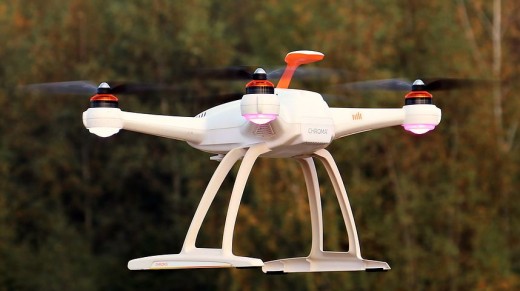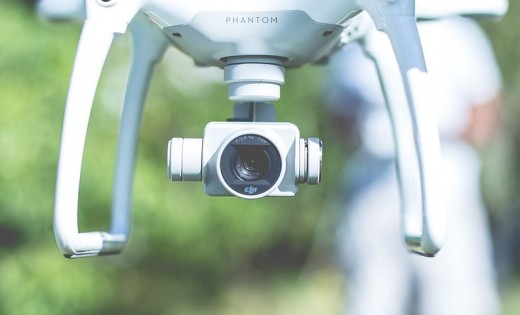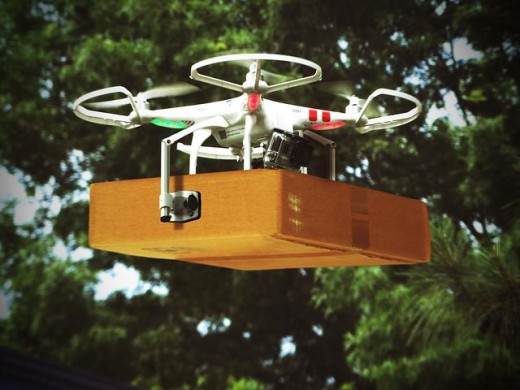THINKING ALOUD (BusinessLaw) COMPANY’S INTANGIBLE ASSETS: Government & Commercial Licences
At the end of the day, though, there are a huge number of considerations that our management team go through before accepting any project - checking out the license is just one of them.
— Andrew Oliver A wealthy and politically active merchant
Chén Róng’s
Little English-Chinese Dictionary
-
In the same league = xiāng tóng de fēn zǔ
-
Revenue-driven = bào lì qū dòng
-
revenue target = suì rù mù biāo
-
baulk at the price = bù yuàn yì zhī fù
-
have teeth = yǒu néng lì ràng rén fú cóng
-
turn a profit = zhuàn qǔ lì rùn
-
Don’t buy the idea = shì shí shàng jiē shòu
-
low hanging fruit = róng yì dá dào de mù biāo
-
zero-sum game= líng fēn bǐ sài
LICENSING & FRANCHISING CONTRACTS:
Differences Explained
Writer: Chén Róng
Owners of small businesses or micro enterprises prevalent in many Asian cities are, at some point, faced with the need to put in more capital and grow, or continue with what they do best and stay small. The financial risks and effort required to grow a small business often prompts many owners to choose the path of inaction. In Singapore and Hong Kong, many small retailers and eateries eventually folded their businesses because of high rentals and competition from established fast food restaurants and chain stores. Others, holding onto their same business model, were seen re-locating to suburbs but only to delay their own eventual demise. Inaction was, therefore, not a good option for them.
Walking along one short pedestrian-street in a Singapore suburb, the writer was able to count more than ten stores all selling hand-phones and these businesses were all owned by young people. These young entrepreneurs probably convinced their parent-financiers that running a small business is more lucrative than working on a nine-to-five job; and the young man is his own boss! Excuse the writer for this remark: while entrepreneurship is a good thing, taking a seemingly easy way out of life is not. A boss probably has to work much harder than an ordinary worker. Perception rarely meets reality. Unless these young self-starters grow their business through licensing or franchising, some may have to close their shops for good. Such may include buying used phones from consumers and reselling them to others, and helping buyers make arrangements with local wireless services to get the phones connected -- all done in an organised and trusted international franchise brand. These consumers are better off buying from a licensee/ franchisee (who can arrange for service) than getting one on-line because there is no guarantee a phone works. This is just the writer having a conversation with himself and thinking it aloud. It takes a creative owner to think carefully if licensing or franchising is a suitable way to expand his business.
Indeed licensing and franchising are two ways through which business owners can quickly grow their enterprises and, at the same time, relegating much of the costs and commercial risks to a third party partner. But there are dissimilar legal implications, and business owners should be mindful of the different requirements and challenges they may face. One observation worth noting is: some franchises include licensing arrangements as well.
When a state government grants a company a license to supply a product or service, the intention is to ensure price-competitiveness. Licensing enables a system of stable, flexible supplies on a tranche-by-tranche basis to take advantage of opportunities arising from changing market conditions. With the same business strategy in mind, private businesses often grant other companies licenses to give them permission to use their intellectual property.
A license is a contract. One party, the licensor, gives another permission to use its patents, trademarks, copyrights, designs or even trade secrets, although less so. The company, as the licensee, pays the licensor a flat fee, perhaps a royalty or a combination of the two modes. However, the contract does not transfer ownership of the intellectual property. Through licensing, small business owners can expand their commercial reach and grow their activities without having to invest in new premises or distribution networks. The risk of business failure is cut down.
A franchise is a contract. Franchising grows a business in manner similar to licensing but a little more so. It permits the franchisee the use of both intellectual property and operating system provided by the franchise. Hence, in addition to using the franchisor’s trademarks, the franchisee uses his principal's distribution systems, and its sales and marketing campaigns to sell the products and/or services. In return, the franchisee pays an upfront fee plus royalties, and a monthly or annual fee is not unusual. Franchising enables a small business to grow much faster than one without a similar partnership. But unlike a licensing deal, franchising will call for more set-up and investment. Nevertheless, it is a less expensive method than one expanding the business through a new outlet in a different location. For these reasons, drafting a licensing agreement is less demanding and it can be drawn up within a shorter period than a franchising contract. The selection process for a suitable franchisee is also more thorough and lengthy because all parties concerned need march in tune to a standardized internal operation, marketing and distribution system that has been painstakingly put in place.
A franchisor, therefore, maintain strict control over how a franchisee operates; and dictates as to how its intellectual property is used and how products or services delivered to customers. A franchisor usually retains the right to setting of prices. As a trade-off, the franchisor offers support in training staff, site selection and marketing. Such requirements must be reduced to writing, hence making its drafting more fastidious than one involving a licensing agreement.
In a licensing deal, the licensor has little control over the licensee and the way he runs his business. Generally speaking, a licensee can use the licensed property in whichever way he chooses. Over the lifetime of the agreement, which is also not as long as a franchising contract, licensees operate almost independently as licensor provides little, if any, support to the licensee.
What surprises most people is: licensees are often seen competing directly with one another so it does not come as a surprise if the guy next door holds the same licensing arrangement. In other words, with a small geographic region, there may be two or more companies licensed to use the same piece of intellectual property. Whereas every franchisee is usually given an exclusive area, in a designated territory, within which he operates. Some territories can be small but a good franchisor will usually provide site-selection assistance provision in the contract to limit direct competition between franchisees.
One other problem with licensing is: some companies choose massive licensing over franchising to local dealers - especially in retail - in a fast and inexpensive effort to leverage better distribution channels. Unfortunately, this strategy led to failure for many when their distribution channels went out of control. Fake goods selling parallel to branded ones are inconsistent messages sent to the buying public. It is hard to regain customers trust when they have spent thousands of their own currencies on counterfeits from licensed retailers. Both licensors and licensees will suffer as a result. Careful consideration is needed when choosing between the two alternatives.
READ OTHER STORIES AT:
http://chenrong.hubpages.com
Key Government Licences
- All Kinds -
Writer: Chén Róng
Licensing pastures in foreign lands are greener? Think again.
Enterprises doing business in a foreign land, especially emerging markets, may expose themselves to a maze of official licences. Many business areas remain highly regulated by a massive state bureaucracy. For businesses bringing goods into particular countries and the running of the related supply chain infrastructure, every import shipment, depending on the product types, may require a dozen different certificates that evidence the product registration. Similar key licences may be required for value-added finished goods production; mineral extraction and production; establishing of information technology or educational services, and the setting up of retail outlets, etc. The list grows on.
When emerging markets are in their early stages of economic reforms, bureaucratic governments and their agencies will impose a myriad of licences, some ranging from mundane to petty ones. Practically every business industry will require an array of licences. These may come from different issuing authorities, including provincial or state owned companies, health, labour, transport. Licences may be issued for a year and renewable, but watch it! Licences may be cancelled at short notice when there is a change of provincial administration.
No matter what the original intention may be, these regulatory approvals and associated bureaucracy create an area where every business faces a bribery risk. Primarily, the rules and procedures for the issuance of various licences may contain inconsistencies and nuances that they become a real challenge to understand them, and not to mention, carry them out. Such legislative ambiguity and procedural complexity give significant discretionary powers to government agencies which could delay or reject the application for the required licences. Moreover, the process of getting regulatory approvals remains cumbersome because of the inefficient management of the administrative services systems. Therefore, many companies seek various opportunities to overcome government bureaucracy thus spending a great deal of money on bribes and time to obtain these key licences to run their various trades.
The inflated costs for acquiring these licences are usually not classified in a company’s Financial Statements as an asset class but nonetheless, essentials for the carrying of commerce. The acquisition costs for such key licences are probably accurately recorded as expenses in Financial Statements of companies.
Is the payment of bribes the only way forward?
Owing to their smaller size and limited capacities, small and medium-sized companies are more vulnerable to corrupt practices when doing business in emerging markets. Bribing government officials is a criminal offense. It is not worth any businessman’s risks. By leaving their moral compass at home and follow the conventional wisdom to pay bribes, hopefully, with impunity is akin to paving their way to jail, or worse, the death sentence if they are in China.
It is wrong to say that you cannot do clean business in countries like Indonesia and China. Some people associate “guanxi” as a dubious relationship for bribery. It is not. “Guanxi” is the building of mutual trust. It is unfair to label a particular country’s bureaucracy as corrupt and immoral. In truth, few countries can say to be corrupt free. Business people need to steer themselves away from all forms of dubious dealings. There will be people who condemn the writer as a naïve novice in business. Yes, there may be corrupt practices in a certain country and the licensing processes slow and difficult. But if you have the right policy and business model, clean business is much doable in the countries mentioned.
We will resume our discussion on the bribery laws and practices in a separate article. Stay in tune.
READ OTHER STORIES AT:
http://chenrong.hubpages.com
SHELL INDIA’s Retail Business
Shell, as a private player, got a licence to open 2,000 fuel stations across India; but so far it has opened fewer than 100 stations. Reason: there is an absence of a level-playing field because State-run oil companies get subsidies, which distort prices. The government provides subsidies to state-run retailers such as Indian Oil to sell fuel products below cost as part of efforts to keep inflation under control. Is there hope for a change anytime soon? Unlikely, politics dictates that the people come first and any change will be gradual, if at all.
Under the scenario, the licence has little intrinsic value for now; although the writer is not certain how this ‘asset class’ is recognised in the financial statements of the company.
COMPANY’S INTANGIBLE ASSETS:
Government & Commercial Licences
WRITER: Chén Róng
Business owners should value the licences granted them by government agencies and commercial organisations by putting them in the same league as those of their other tangible and intangible assets – that is my personal point of view. Granted: Not every licence has what an accountant would call ‘intrinsic value’ that renders it a place of recognition in the financial statements as an intangible asset. My viewpoint may be considered subjective, but so are those cases for overblown valuations of certain assets based on unrealistic future cash flows – accounting methods similar to the Enron scandal – equally these are personal perspectives of trained experts in their field. Hence, do allow me to think aloud.
Licences are issued by government and commercial organisations for a variety of purposes.These formal permissions run the gamut from licensed professionals in engineering, building trades, law and medicines to commercial arrangements where a licensor of patent (or a trade mark; a design copyright) grants exclusive rights of use under agreement.
-
Licences granted by Government Agencies
I can think of two reasons why many business owners do not place as much importance on these licences granted to them. They regard each of such licences as an expense item, a cost of doing business; it is merely a revenue-driven exercise, a form of indirect taxation
It is true that obtaining a license is just an expense paid for getting into a particular business. In many instances, the price comes with exclusiveness when governments, especially of emerging economies, bar foreigners entirely in areas such as media, and the practice of licensed professions such as engineering, law and medicine. It buys time for these industries to muscle-up to match the competition in an open economy – the stage when a country may have to open up to foreign businesses where direct foreign investments are much needed to grow the economy. In a sense, licensing creates for particular business an intrinsic value – the value of a business’s on-going operations during this hand-holding period.
Moreover, licenses are granted by government agencies for specific purposes; the need for rules and regulations when a licensee engages in trade and services in the public domain. The famous polydactyl cats (six or more toes per paw), supposedly bring their owners good fortune, need no licenses if kept as domestic pets. But Hemington Museum in Florida kept them as exhibited animals and used them in advertisements; sells related cat-related merchandise online and makes them available to paying tourists. The federal regulator, while granting Hemington an exhibitors’ licence, had wanted the museum to come under stricter rules and hence be regulated under the Animal Welfare Act. If the fee is fair and reasonable, it is hard to complain of an attempt at revenue target.
Incidentally, you can also get a licence to adopt Sumatran tigers as pets; it is a conservation plan by the Indonesian government to save the beast from extinction. Tigers are not for sale. These animals are for renting only at a hefty annual fee of US$100,000 per pair. Activists labelled the move as revenue-driven! Wealthy Indonesians don’t baulk at the price. But rules are in place to monitor the health and well-being of these ‘pets’, thus involving costs to the administration. Is that also revenue-driven approach? It depends on one’s financial standing, really! Keeping those pets may be a status symbol.
If a corporation were to treat keeping Sumatran tigers as an exercise in public relations; cultivating an animal welfare program as a way towards corporate social responsibility (CSR) will bring indirect financial benefits - people tend to purchase goods and services from companies aligning themselves to CSR programs. A 2012 survey done by Humane Research Council reviewed that animal protection came out on top, along with workers’ rights. After decades of struggling for recognition, the protection of animals is now considered one of the paramount social justice issues of modern times by a majority of adults in Western countries. Any company that takes the step towards supporting this movement is sure to increase its goodwill – another intangible asset.
People are sceptical about business licences granted by government agencies. Are such written authorizations really oriented toward revenue? It is debatable.
Pedal boats, canoes, kayaks, surf-boats or non-motorised rubber inflatable boats are not regarded as pleasure crafts as these are generally operated near the coast where waters are calm and pose little danger to their users and the public. However, Pleasure Craft Licence is issued to a vessel used for fishing as a sport - for water sports - or pleasure purposes and includes a recreational platform. Such official authorisations are now increasingly granted for use by both individuals and businesses. A pleasure craft licence is a document with a unique licence number for a pleasure craft.
It is not uncommon for marine police to be called in to search for missing crafts and their occupants. Imagine the difficulties marine police may have to face searching for these crafts in deep waters, and sometimes in severe weather conditions. The Pleasure Craft Licensing program will improve public safety and security by giving search and rescue and law enforcement agencies 24 hour, seven-day a week access to the licence information they need in emergency situations. Licensing will also ensure that these crafts are of acceptable designs and properly maintained for use at designated places at sea. Even with such precautions, accidents may still happen in unforeseen circumstances, and with dire consequences for both the victims and the craft owners. Some laws provide for punitive or exemplary damages for victims of boating accidents. In ensuring that financial damages meted out by courts have teeth, laws may require appropriate insurances to be taken out as prerequisites for issuing and renewal of licences. Even if licensing is driving strong revenue, earnings are only profits after costs are covered. Judging by the scale and expense of their rescue operations, it is hard if ever marine police could turn a profit!
-
Licences granted by Commercial Organisations
I wish to reiterate that business-owners may not necessarily recognize the commercial licence as an asset class; and, just as they would not consider their Insurance Contracts as intangible assets, but current liabilities - costs of doing business. To these owners, securing a commercial licence is merely a means to an end: going into a particular business.
I would like to think of commercial licensing as an intangible asset with recognisable economic benefits. An intangible asset can be defined as an identifiable non-monetary asset without physical substance; an asset class that comes with an intrinsic value that grows your Balance Sheet as more licences are acquired over time. As mentioned, some commercial licences may neither have intrinsic values nor possess other critical attributes to qualify as intangible assets under Accounting Standards; chances are, if licences are viewed as costs of doing business, an organisation may never place sufficient importance on them as would be the case of other recognised asset classes. Don’t buy the idea? Let’s say you are in the global supply chain business; you are licensed clothing makers to international retailers in the United States and Europe. You may operate out of a precinct garment factory in the Far East, but much of your work is subcontracted out to other factories in the region. Owing to poor due diligence, some work were placed with factories with questionable workplace conditions - breaching terms in which you were awarded licences by retailers. One day, an unfortunate plant fire reviewed safety issues which were the cause of a fatal accident– the revocation of the licence will result in substantial financial loss to you as licensee, not only in terms of revenue, but also a valuation markdown on your intangible assets: goodwill and the revoked licence. If one regards something as of little financial value, chances are, they will be treated as such: off-balance sheet items in which the company does not have responsibility for.
Although a commercial licence does not have the obvious physical value of a piece of equipment, it can prove valuable for a company’s long-term success. For instance, securing an operating licence from an aviation authority of a developed nation may be a form of name recognition for reliability and high quality services; a recognition that can drive global sales year after year, and an intangible asset that must be closely guarded. Its value can be optimized in manner a physical asset, such as a factory premises, would be safely monitored and operationally plan to enhance values. Hence, licensing is akin to an exclusive business club where memberships are limited to a few.
Unfortunately, this is not often the case when business owners looked the other way – licensing as an operating expense – taking the commercial licence for granted as a given. Companies which came into an industry as new-entrants are generally unprepared. They have taken advantage of the ‘low-hanging fruit’ of rapid growth; and with rising competitiveness and tougher compliance legislation, such companies do not get out of their complacency fast enough. An airliner was recently suspended over flight disruptions because of workers’ strike for unpaid wages. Perhaps they gave little thoughts to proper cash flow management that could produce a chain effect; one that may lead to revocation of licences. Getting a licence renewal is not a given; competitors are waiting in the wings once a business is proven profitable, and new licences will only come about if an existing player drops out – a zero-sum game. Once a suspended licence expires, it may be impossible to secure a renewal.
Just as recent as last month, two suppliers of bunker fuel had their licenses annulled; a revocation that should never have happened had they pay a little more attention to contractual detail - a clause prohibited the transferring of bunker license to another entity. They breached terms of their licence by allowing another company to use its bunker delivery notes to supply bunkers to customers. The licence was stated as non-transferable. What constitutes non-transferability is usually explained in the context of the licence itself, and it is for the licensee to take note and comply with its requirements.
The legal definition of "transfer," may encompass the act of selling, bartering, giving, lending, renting, sending, transporting, shipping, distributing or delivering. It depends on the wordings of the piece of legislative code that governs the issuing of such licences. What probably is not understood by the licensees is the concept of legal entity. Each and every company within the Group – subsidiaries or associates – is a legal entity. In business, the concept of a legal entity becomes important. If a business is a separate legal entity, it means it has some of the same rights in law as a person. It is, for example, able to enter contracts; it may sue and be sued, incur debts and own property. It may own a licence (may be considered a property) granted under a contract and, therefore, subject to all its terms and conditions.
In the case of the bunker suppliers mentioned, they started a new business in bunker trading. Instead of returning the unexpired bunker supplier licences, they let associate companies used their bunker delivery notes, effectively renting or lending the licence - an act prohibited and punishable under the rules. What they could have done was to place both bunker-trading and bunker-supply businesses as two separate divisions within the same company; and they do not have to be located at the same premises, if space does not permit. A better way may be to keep bunker trading under a new special-purpose company, an affiliate name that can readily be identified as part of the old bunker supply company. In the absence of personal guarantees of the owners or other stipulations that identify them with the bunker supply business, the company can be sold and shares transferred to new owners who can continue to operate under the unexpired licence. An alternative: the intended operators may be admitted as shareholders of the private limited company, effectively creating a joint venture enterprise to run the bunker supply business.
From a personal perspective, I need to caution that not all licences are created the same. Generally speaking, commercial licences are granted by business organisations under contracts. In other words, such licences that derive from agreements come under contractual laws. However, countries the world over now embarking on economic growth in diverse sectors may open up to foreign companies in industries such as food & beverage, health care, retail and services. Business organisations may dress up franchising licences as contractual commercial licences so as to circumvent stringent regulatory requirements; rules some may consider as controversial and protectionist by nature. Franchising is a regulated industry and licences granted by business organisations are subjected to rules and regulations. In order not to run afoul of local laws, it pays to have licence proposals vetted by lawyers well versed in such franchising laws in the country concerned. Nearer home, Indonesia is now probably Asean’s fastest growing economy. Franchising fences are now erected to protect many burgeoning local industries. Some regulations that smelled of protectionism are temporary and reversible short term measures, we hope. Short of a common market, open economies are our best wishes for Asean.
Licences should be treated as an intangible asset; and if properly managed, it not only brings with it a constant stream of revenue, but also goodwill and an international brand name in some cases. As a logical next step, every business should try emulate the success of great brand names like Coca-Cola, the world‘s No. 1 beverage company.
READ OTHER STORIES AT:
http://chenrong.hubpages.com
----------------------



Disclaimer
The writer makes no warranty of any kind with respect to the subject matter included herein or the completeness or accuracy of this article which is merely an expression of his own opinion. The writer is not responsible for any actions (or lack thereof) taken as a result of relying on or in any way using information contained in this article and in no event shall be liable for any damages resulting from reliance on or use of this information. Without limiting the above the writer shall have no responsibility for any act or omission on his part. Readers should take specific advice from qualified professionals when dealing with specific situations.
Hubpages do not support words written in the Chinese Language. Readers can get a free online English-Chinese translation from GOOGLE TRANSLATE OR TRANSLATED.net
I have also included ChénRóng’s Little English-Chinese Dictionary for a more precise translation of select English phrases from the article.
Buying a Commercial Drone?
Watch the licensing rules !
Increasingly, businesses are using drones for aerial photography, videography, surveillance or inspection at lower costs. It is particularly useful for surveying works in the construction and oil industries, and where high-end models are use almost daily.
If your family business intends to buy a drone for whatever reasons, think it over whether or not you actually need one now. A off-the-shelf commercial drone may prove obsolete within a short time while a custom-made model can be significantly pricier. Besides, ownership has its responsibilities and costs. You are actually flying an unmanned aircraft ! If drones are flown in the vicinity of an airport, they pose a hazardous distraction to aircrafts during take-offs and landing. Cameras may be attached to allow drones to take aerial photos or videos of their surroundings. This gives rise to legal and ethical issues when drones may invade the privacy of others.
An official permit may not be required. You may be operating a consumer craft like a hobbyist drone- one that provides enough power for short trips and carrying the weight of an attached camera for aerial shots. Even so, you must put in place guidelines on how, when and where drones can be used only at destinated workplaces. There is a need to name certain employees as persons exclusively allowed to operate these drones. Guidelines are to be revised and updated to meet changing circumstances or perceived liability associated with their use.
Chances are, you may need a commercial licence. It will spell out all rules - where and how drones can be flown safely. These licensing rules are important and should be adhered to by every authorised user in your workplace. Do not leave these rules in their small print. Have them reproduced and enlarged ensuring that authorised persons stick closely to these rules when operating the drones. This is the best way to manage ownership. Chances of you running into legal and ethical issues are minimised if persons act responsibly within the rules.
For companies which rarely have to use drones for commercial or industry purposes, it is more cost-effective to engage the services of professional services. Although drones have become cheaper, the hazzle associated with ownership may not worth your trouble. With the growing number of drone photography and videography firms, professional fee will come down with competition. Besides, different projects require different payloads - the equipment attached to a drone. It is commercially more sensible to let the professionals decide if a particular drone can take the weight of the payload and that they do not crash in different weather conditions.
Read other stories @ chenrong.hubpages.com






